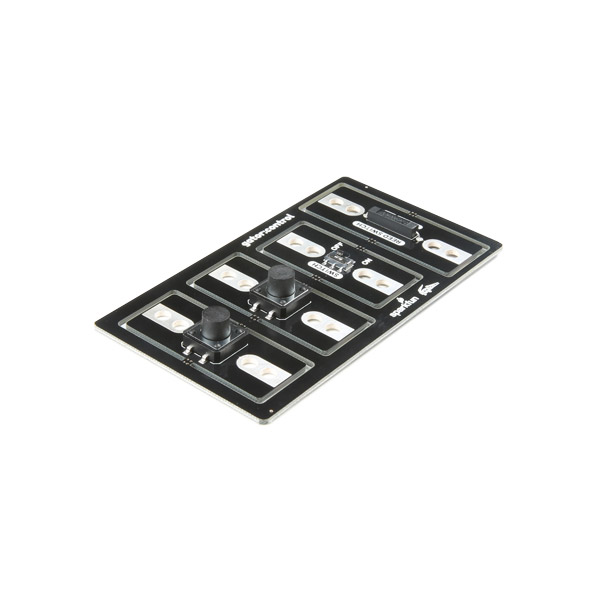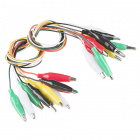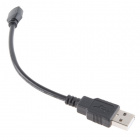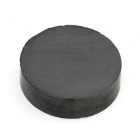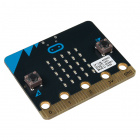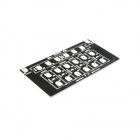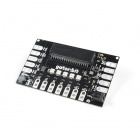Contributors:
 Englandsaurus
Englandsaurus Introduction
The gator:control is one of a series of gator-clippable boards called gator:boards that SparkFun has created to interface with the micro:bit and gator:bit v2 expansion for micro:bit. The gator:control contains two buttons, an on/off slide switch, and a reed switch, which is activated by a magnet. In this hookup guide, we'll go over how to hook up each of the individual boards, along with some examples involving all of the boards together.
COM-14968
The gator:control ProtoSnap provides you with a handful of different ways to interact with projects you create using only gat…
Retired
Required Materials
For this activity, you'll of course need a micro:bit. You'll also need some alligator clips to connect everything together, and a micro-b USB cable to program your micro:bit. A magnet is also a good addition to the mix, as this is the only way to activate the reed switch. All of these things are shown below, so grab them if you haven't already. You can go ahead and grab a gator:bit v2 as well to create some more robust projects, but you'll be able to get along fine with just a micro:bit.
PRT-12978
Alligator clips (or Crocodile clips, if you prefer) are likely to be the most useful thing on your workbench besides the work…
CAB-13244
This is a USB 2.0 type A to Micro-B 5-pin black cable. You know, the mini-B connector that usually comes with cell phones, Ca…
COM-08890
This is your standard fridge magnet, perfect for holding up quite a bit of weight. Grade C8, ceramic disk magnet. Magnetizati…
DEV-14208
The BBC micro:bit is a pocket-sized computer that lets you get creative with digital technology.
Retired
COM-14890
The gator:color ProtoSnap is perfect if you want to add a low-profile glowing component to your project.
Retired
DEV-15162
The SparkFun gator:bit is an all-in-one “carrier” board for your micro:bit that provides you with a fully functional deve…
Retired
Suggested Reading
If you decide to use the gator:bit and it's your first time using the board, check out the gator:bit v2 Hookup Guide.
SparkFun gator:bit v2 Hookup Guide
January 31, 2019
The gator:bit v2 is a breakout board for the BBC micro:bit. The gator:bit exposes almost every pin on the micro:bit to clippable pad with circuit protection. It also has as built-in addressable LEDs and a built-in buzzer.
Also, if you're starting out with electronics and aren’t familiar with the following concepts, we recommend checking out these tutorials before continuing.
What is a Circuit?
Every electrical project starts with a circuit. Don't know what a circuit is? We're here to help.
What is Electricity?
We can see electricity in action on our computers, lighting our houses, as lightning strikes in thunderstorms, but what is it? This is not an easy question, but this tutorial will shed some light on it!
Light-Emitting Diodes (LEDs)
Learn the basics about LEDs as well as some more advanced topics to help you calculate requirements for projects containing many LEDs.
Analog vs. Digital
This tutorial covers the concept of analog and digital signals, as they relate to electronics.
Getting Started with the micro:bit
The BBC micro:bit is a compact, powerful programming tool that requires no software installation. Read on to learn how to use it YOUR way!
